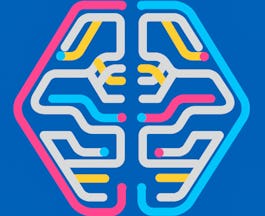Filter by
The language used throughout the course, in both instruction and assessments.
Explore the Jupyter Course Catalog

Google Cloud
Skills you'll gain: Algebra

University of Colorado Boulder

University of Colorado Boulder

University of Colorado Boulder
Skills you'll gain: Algorithms, Leadership and Management, Mathematics, Probability & Statistics, General Statistics, Problem Solving, Theoretical Computer Science, Computer Programming, Communication, Databases, Critical Thinking, Data Structures, Data Management, Estimation, Finance, Data Analysis, Design and Product, Research and Design, Systems Design, Mathematical Theory & Analysis, Database Design, Hardware Design, Writing, Data Model, Project Management, Strategy and Operations, Machine Learning, Probability Distribution, SQL, Computational Logic, Decision Making, Strategy, Database Theory, Database Administration, PostgreSQL, Computer Architecture, Operating Systems, Computational Thinking, Computer Programming Tools, Graph Theory, Planning, Process Analysis, Internet Of Things, Statistical Tests, Correlation And Dependence, Database Application, Financial Analysis, Statistical Analysis, Algebra, Business Communication, Machine Learning Algorithms, Product Management, Regression, Computer Networking, Agile Software Development, Business Analysis, Data Visualization, Product Design, Professional Development, Statistical Machine Learning, Accounting, Business Process Management, Cost Accounting, Creativity, Linear Algebra, Python Programming, Material Handling, People Management, Programming Principles, Statistical Programming, System Programming, Deep Learning, Calculus, Investment Management, Organizational Development, Risk Management, Computer Vision, Business Design, Entrepreneurship, Experiment, Performance Management, Product Development, Scrum (Software Development), System Security, Network Architecture, Business Intelligence, Differential Equations, Exploratory Data Analysis, Financial Accounting, Network Security, Product Lifecycle, System Software, Visual Design, Cloud Computing, Microarchitecture, Financial Management, Graphic Design, Supply Chain and Logistics, Security Engineering, Big Data, Collaboration, Distributed Computing Architecture, Innovation, Marketing, Software Engineering, Software Security, Software Testing, Amazon Web Services, Cloud Applications, Cloud Platforms, Cloud Standards, Security Strategy, Linux, Adaptability, Applied Mathematics, Budget Management, Leadership Development, Network Analysis, Operations Management, Market Research, NoSQL, Data Mining, Negotiation, Product Strategy, R Programming, Software Architecture, Software-Defined Networking, Dimensionality Reduction, Forecasting, Kubernetes, Business, Computer Science, Data Science, Data Warehousing, Java Programming, Resilience

Imperial College London

University of Pittsburgh
Searches related to jupyter
In summary, here are 7 of our most popular jupyter courses
- Intro to TensorFlow 日本語版: Google Cloud
- BiteSize Python for Absolute Beginners: Essentials: University of Colorado Boulder
- BiteSize Python for Absolute Beginners: Data Structures: University of Colorado Boulder
- Introduction to Controlled Generation with the Gemini API: Google Cloud
- Master of Science in Data Science: University of Colorado Boulder
- Master of Science in Machine Learning and Data Science: Imperial College London
- Master of Data Science: University of Pittsburgh











